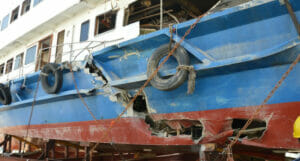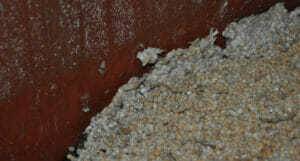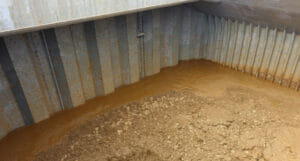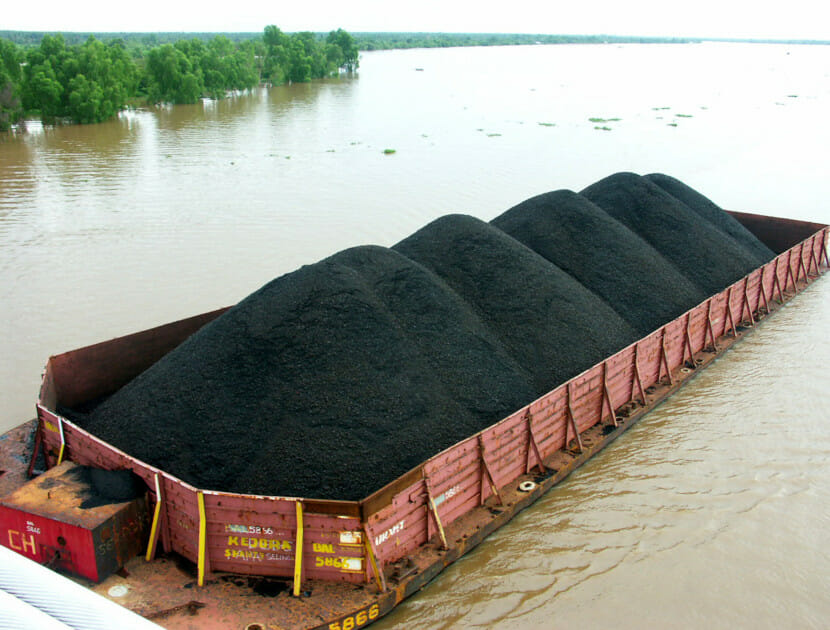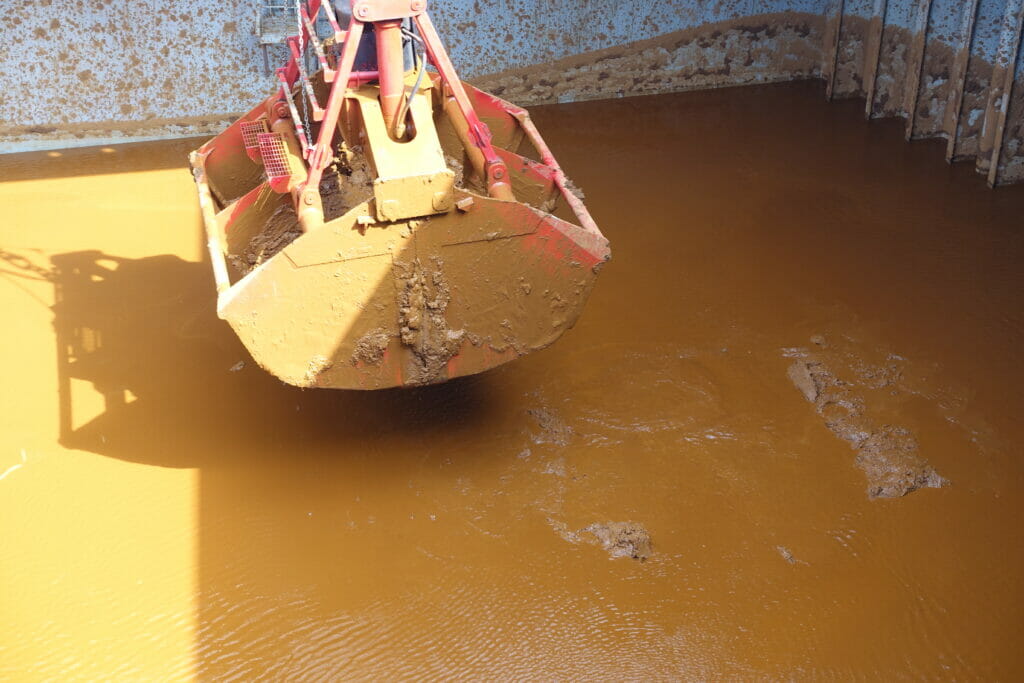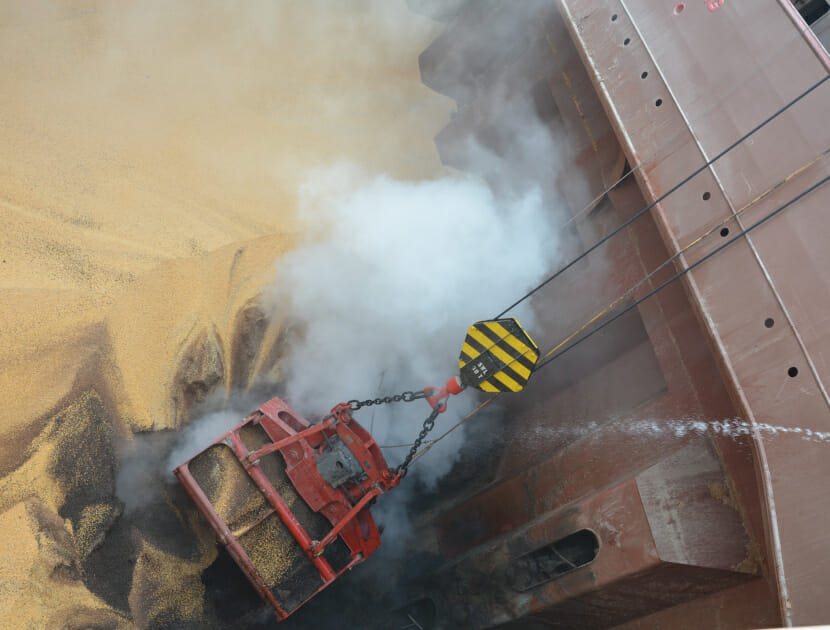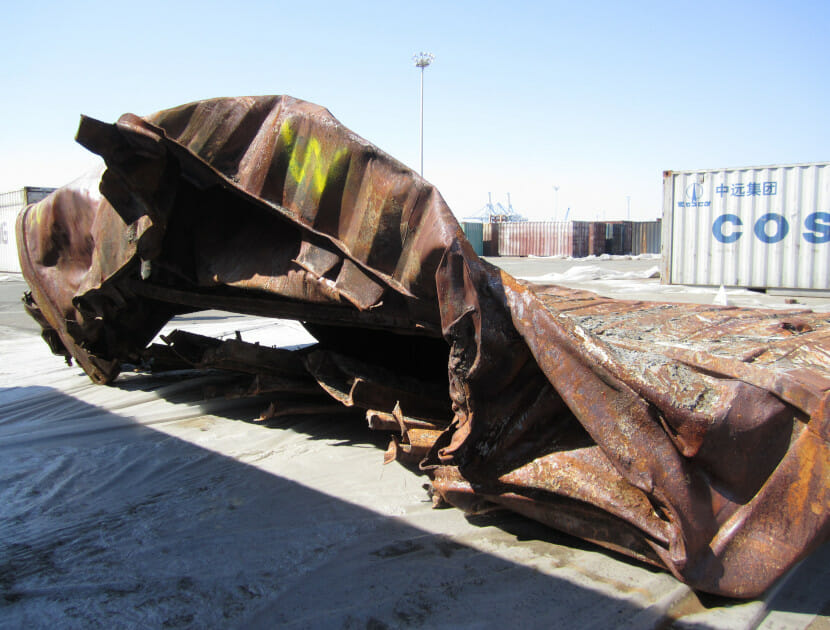Materials failure is the inability of a component or assembly to function properly, as a result of its integrity being compromised. The most common failure mechanisms are corrosion, fatigue, ductile/brittle fracture, hydrogen embrittlement, creep and wear. Within maritime, we see a wide variety of failures on board, ranging from damaged pipework in the engine room, to snapped wire ropes in the hoisting mechanisms, and corrosion of lashing gear. The extent of the failure in each case can vary both in type and magnitude, and can create enormous problems for all parties involved, particularly if delays are incurred.
Our experts are qualified engineers and scientists, who are all experienced in the investigation of materials failures on board. We are competent in coordinating and overseeing the sampling of damaged components, and organising any subsequent analysis in a third-party, independent laboratory, to assess the mode of failure.
If one of your vessels suffers a materials failure, whether it be still at sea or at port, Hawkins Experts can attend promptly and have the necessary skills to assess the damage and investigate the cause.
WHY APPOINT A FORENSIC INVESTIGATOR?
We have the technical knowledge and experience to tell you why material damage has occurred, by taking into consideration the specific mode of failure within the context of the incident.
- We have an in-depth knowledge of the regulations and guidance, and material specifications that should be followed by competent engineers and technicians handling engineering materials and systems.
- We review working practices and installations to identify areas at high risk of a fault.
- We offer guidance and/or help you define and develop good working procedures and practices to reduce the risk of incidents occurring.
- We provide you with the answers you need to determine why an incident occurred and so assist in repudiation/cover decisions and fraud identification.
- Our experts are knowledgeable in a wide range of areas and can investigate all aspects of a materials failure, meaning that you will probably only need to instruct one expert, rather than several.
- We have laboratories and equipment designed specifically to investigate materials failures, with powerful, state-of-the-art stereomicroscopes.
- We support subrogation/recovery efforts.
- We help you to make decisions regarding where legal responsibilities/liabilities lie.
- We help you to defend wrongful claims.
- We produce reports suitable for Court and litigation.
- We provide consultancy advice to prevent similar events happening again in the future.
- If removing a risk entirely is unavoidable, we advise on steps to take to mitigate the risk and reduce the potential damage resulting from an incident.
- We advise on servicing, maintenance and repair regimes.
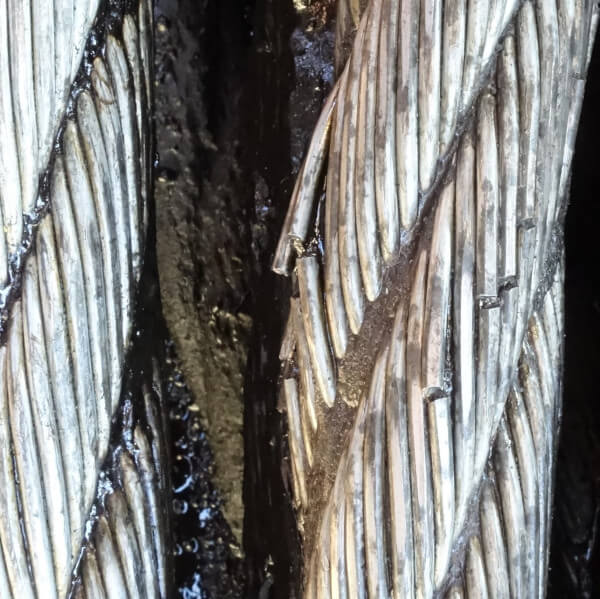
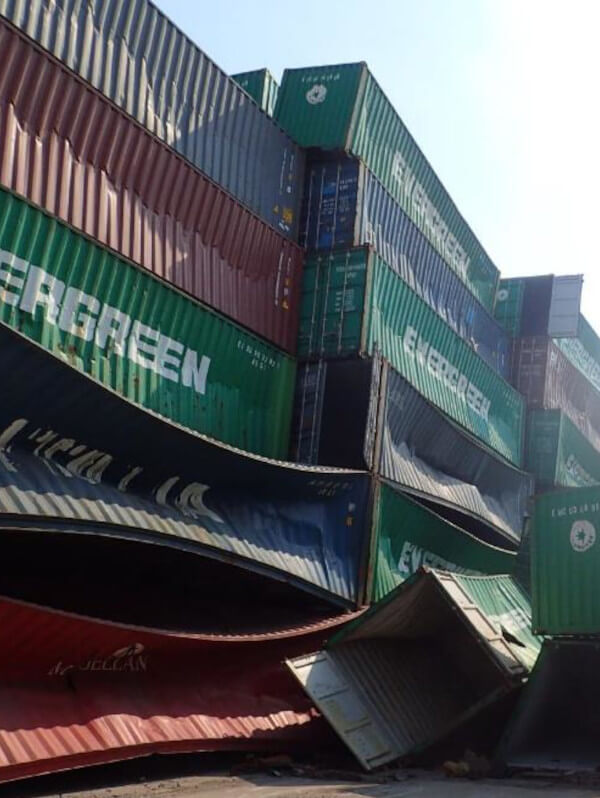

Examples of Typical cases
The list below provides a few examples of cases which we investigate regularly or have investigated in the past.
- Stanchion collapse during loading
- Corrosion of propeller
- Corrosion and separation of anchor assembly
- Detachment of rudder assembly
- Fracture of fuel line pipework
- Snapped wire ropes
- Catastrophic failure of a flywheel in the auxiliary engine
- Impact damage on hull
- Failure of twistlocks on containers
- Failure of strops during loading
Our services range from a free consultation through to a full investigation including a court-compliant report for the support of legal action.
Whilst site attendance can be dependent on the safety and accessibility of a location, we normally schedule visits within one day of instruction. In circumstances where there is a more urgent requirement, we are often able to attend on the same day.
If you would like to discuss how we can assist you please fill out our enquiry form or call us for a free consultation.
HOW DOES HAWKINS INVESTIGATE MATERIALS FAILURES ONBOARD SHIPS?
1
Consultation
We like to speak to you before we conduct any work, to establish how we can add value to the case. These discussions help us to understand your requirements, as well as determining how much information is already available, including for example, service records, first-hand witness accounts, photographs, and videos. We are also happy to provide you with an estimate of the cost of conducting a forensic investigation.
2
Inspection
If required and with your agreement, we will arrange to visit the vessel to inspect the reported damage. Wherever possible, we will retain the damaged parts for examination and analysis at an independent, third-party laboratory so that we can assess the mode of failure using low and high magnification microscopy and if necessary, chemical and mechanical tests.
3
Conclusion
Case Study
It didn't seem that heavy…
During discharge of containers at port, a nylon strop comprising the lifting assembly of one of the containers broke, resulting in a fatality as it fell down at the quayside.
Hawkins was asked to investigate, and attended on board promptly to examine the broken strop. The fracture surfaces of the strop were clean and straight, consistent with it having abraded against a sharp edge whilst carrying the load. Hawkins was able to demonstrate that the rigging configuration was not appropriate and breached various guidelines and standards.

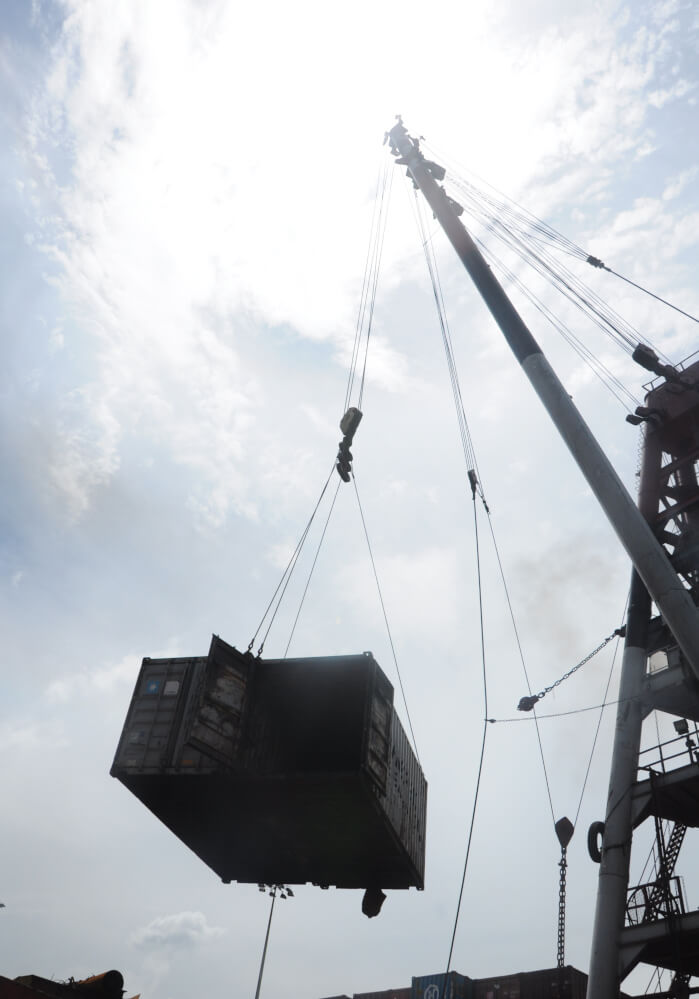
SPEAK TO ONE OF OUR EXPERTS
Testimonial
“Thank you for your superb effort in this case.”
Rhys Phillips
“Many thanks for turning out today at such short notice and providing the benefit of your expertise and knowledge. It was evident the Client was extremely relieved that this matter was being investigated expeditiously.”
Chaz Winterton
“I just wanted to say thank you for all your help and the information you found was of real insight. Thank you again for all your help.”
Stewart Hargreaves
“I just wanted to say thank you for all of your hard work preparing the Hawkins report. Please pass on my thanks to the rest of the team. We really appreciate the hours you have all put in and I know the client is pleased with your work.”
Philippa Jones
Related areas of expertise
Marine Engineering
The maritime and offshore engineering industry encompasses a wide range of disciplines and any incidents or losses can be complex in nature.
Cargo Spoilage
Many agricultural cargoes such as maize (corn), wheat, soybeans and seedcake are shipped in bulk. Such cargoes have a limited safe storage period before their quality deteriorates. The subject of storage of agricultural cargoes is a complex one with many variables to consider.
Liquefaction
Liquefaction can lead to a loss of stability in the cargo, upsetting the trim of the vessel. Extreme cases can cause capsize and foundering. Our experts are qualified engineers and scientists, familiar with the carriage of cargoes that can liquefy.
Marine Coating Failures
Marine coatings are used to protect the external surfaces of the ship in addition to the internal surfaces of the cargo holds/tanks, and are applied to protect the underlying steel from abrasion and corrosion.



